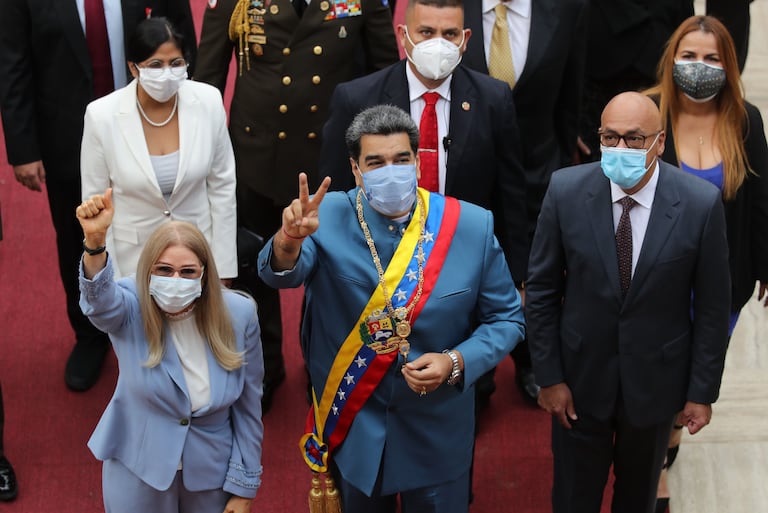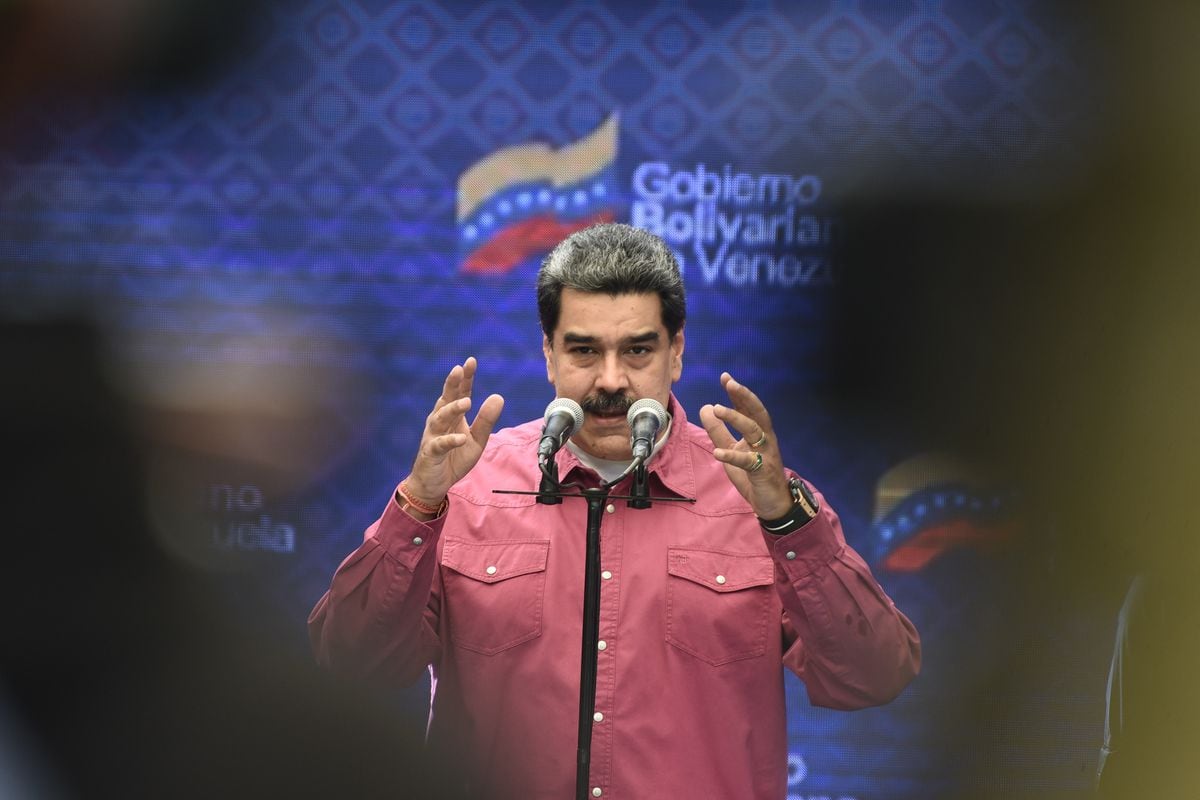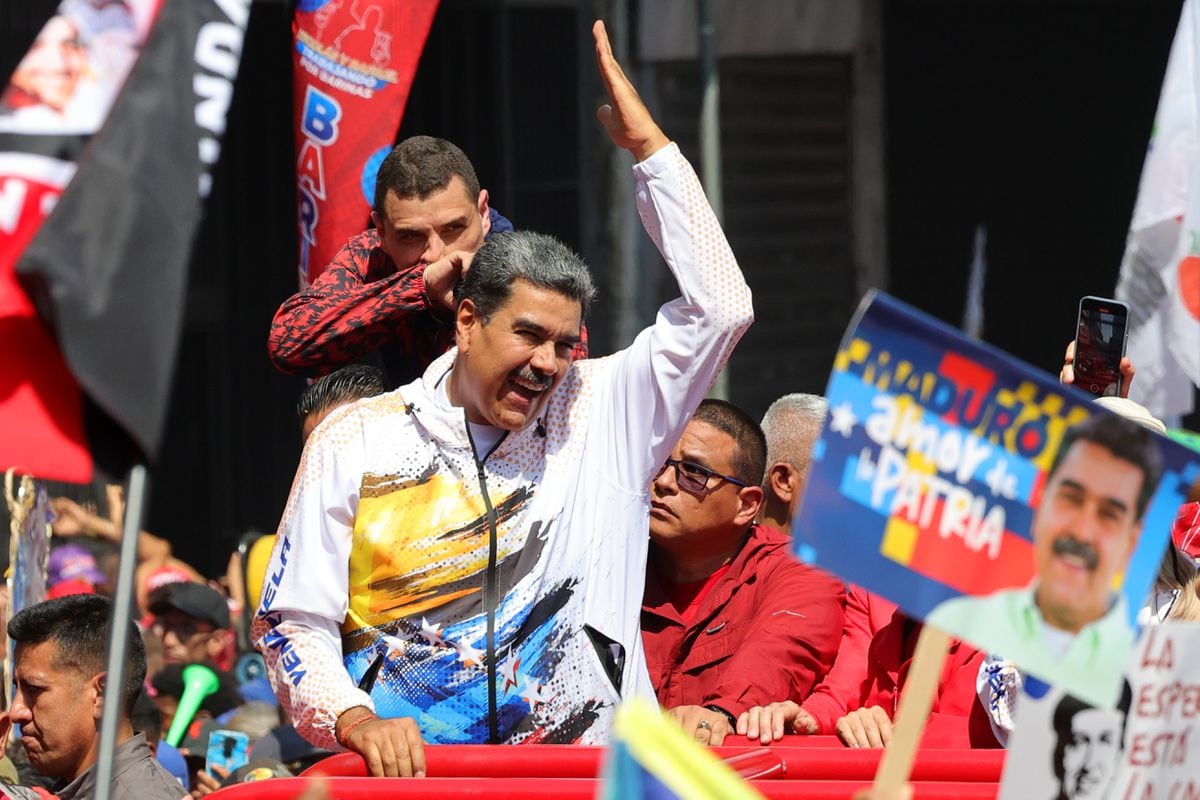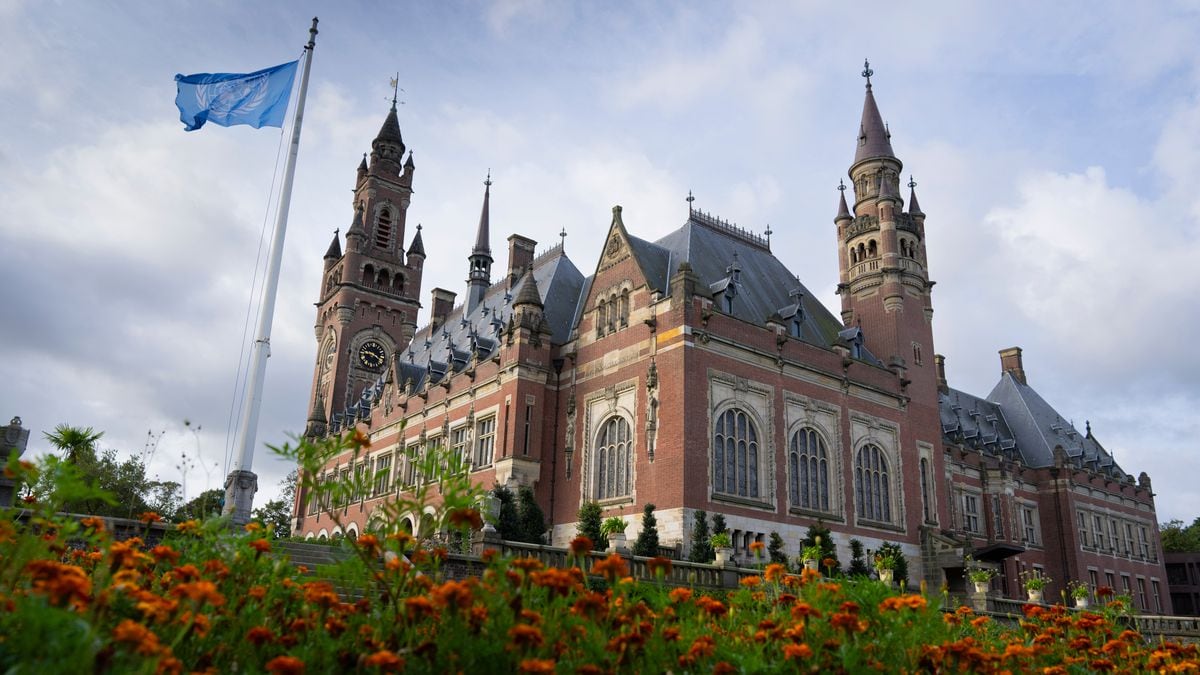Nicolás Maduro, on January 12 at the headquarters of the Venezuelan Parliament in Caracas.Miguel Gutiérrez / EFE
Nicolás Maduro's government seeks to increase investments in the oil sector in an attempt to reactivate a market in ruins, controlled until today by the state company, PDVSA.
Venezuela intends to double production to 800,000 barrels a day with the landing of international contractors, mainly from countries allied to Chavismo.
The measure, articulated in a law designed to circumvent United States sanctions, represents an unprecedented relaxation of the sector in a country closed to foreign investment.
The government's purpose is to seek alternatives to Petróleos de Venezuela after decades of corruption and mismanagement.
It will do so through a regulation, called the Anti-Blockade Law, with which it seeks to patch up the entire economic fabric of the country.
However, the isolation of Venezuela on the international board is also an insurmountable barrier to doing transparent business with most countries.
An example of this is the network led by Colombian businessman Alex Saab, alleged figurehead of Maduro, who used companies in Mexico, Russia or the United Arab Emirates to distribute the Caribbean country's crude and be able to evade sanctions, according to an investigation published by EL PAÍS and
Armando.info
"The vetoes and the information opacity of the law are a problem for large, visible western companies, exposed in their countries, forced to report their steps.
The fear of sanctions is an impediment ”, comments a senior executive in the sector who prefers not to identify himself.
Traditionally one of the world's largest oil exporters, Venezuela produced 3.5 million barrels a day of crude for several decades.
The overwhelming corruption, indebtedness, precarious salaries and the emigration of qualified personnel from Petróleos de Venezuela have reduced production to 400,000 barrels.
Today PDVSA cannot supervise or protect the local oil business even if it wanted to and the Government is aware of this.
The turn of Chavismo in search of capital has a brain: Tarek El Aissami, economic vice president, one of the pieces of Chavista power and current Minister of Oil.
Asdrúbal Chávez, the new president of PDVSA, a Bolivarian leader linked to the industry, is credited with stopping the free fall in production in recent years.
Maduro recently announced the official long-term goal of reactivating national crude production by 1.4 million barrels per day.
However, this objective, according to experts such as the oil economist from the Central University of Venezuela, Rafael Quiroz, "is impossible to meet."
Sources linked to the oil business consider it more feasible for the Bolivarian Government to finish conquering the will of some Venezuelan private operators, international producers of diverse origins and medium-sized contractors to reactivate light wells on the eastern coast of Lake Maracaibo, in the state. Zulia, as well as marginal fields of the Orinoco Belt.
Maduro will be able to rely on the help of allied countries, such as Turkey, Iran, India, and perhaps Russia and China, despite the country's enormous indebtedness to both.
If this effort is crowned with success, which according to experts is possible, the country could double its production in the short term to 800,000 barrels.
The interest of the large oil multinationals, particularly the western ones, in the face of new offers from Chavismo has been moderate.
Miraflores makes new promises, offers votes for rectification and insists on talking about preferential exploitation frameworks.
Some of these companies, repeatedly demonized as "imperialist vampires", had previously had to relate to an overbearing, threatening government, grown up in the face of the soaring oil prices of the first decade of the century.
However, some of these offers, according to spokespersons consulted who asked to keep their name in reserve, "are late."
Biden and the penalties
The private oil companies that operate in Venezuela particularly suffer from the high taxation imposed by the authorities, the difficulties of these years to repatriate their assets and the great debt that the Venezuelan State has with them.
In the Venezuelan private oil sector, the end of exchange control, which lasted 17 years, was greeted with enormous relief, and the conclusion is widespread that official overregulations seriously hurt the industry.
"If Maduro manages to offer private capital a minimum of security, and the Joe Biden government gives in to sanctions, the country could reach one million barrels relatively quickly," says economist Orlando Ochoa. “I don't think the United States will remove the sanctions for now. It is also necessary for the joint ventures to reactivate, to maintain the capacity to service the wells. Many international oil companies are still in Venezuela, but working halfway. Venezuela currently has about 30 million barrels accumulated in its warehouses that have not been able to be placed in the market. "










